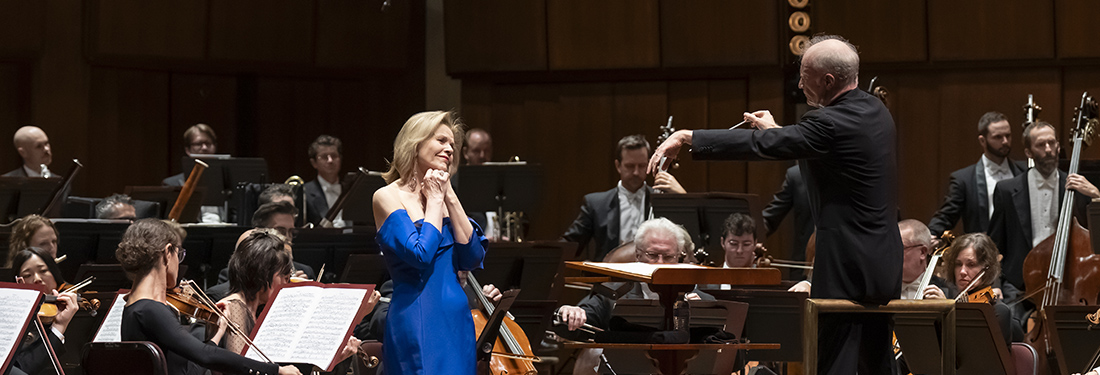
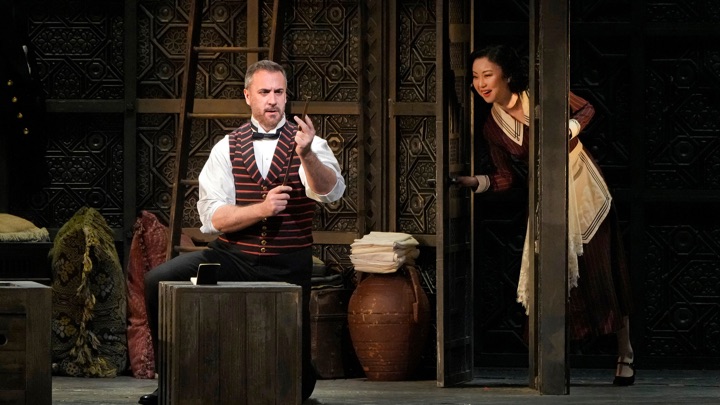
True, Rob Howell’s enormous ugly trellised revolving set remained, but the execution of Sir Richard Eyre’s hyper-busy 2014 production varied so much from January to April that I wasn’t surprised to discover that each revival was overseen by a different resident stage director.
Compared to Paula Williams’s earlier realization, Sara Erde’s crew on Saturday mined more humor from Mozart’s divine setting of Beaumarchais’s play about a crazy day in the Almaviva household, transposed by Eyre from the late 18th to the early 20th century. By far the biggest difference between the two runs sprang from their Counts: in January Adam Plachetka’s mediocre singing matched his distasteful characterization. It was difficult to imagine why any woman would ever forgive his aggressively vulgar behavior.
On the other hand, Gerald Finley, as always, a most accomplished Mozart stylist, delivered a Count more foolish than reprehensible, one whose horny middle-age crisis caused his considerably younger wife more vexation than real grief. I last heard Finley in Nozze a decade ago (pursuing the disastrous Susanna of Mojca Erdmann), and while this time he took a bit to fully warm up, his boldly executed “Hai già vinta la causa!” belied his 62 years (!). Eyre doesn’t demand that the Count kneel to ask forgiveness (a mistake, I think), but the Canadian bass-baritone’s melting entreaty was achingly irresistible.
The unavoidable postponement of the Met’s new Ivo van Hove Don Giovanni deprived us of the potentially delicious partnership of Finley’s Leporello with Peter Mattei’s Giovanni. Unfortunately, the rescheduled Giovanni next season pairs Mattei with a decidedly less promising manservant: Plachetka.
The Czech Count’s adversary in January was Ryan Mckinny whose light-on-his-feet Figaro proved a delight. Finley’s was another bass-baritone, Christian Van Horn, whose towering, stentorian Figaro proved consistently too loud, more suitable perhaps to Verdi than Mozart. Dramatically though Van Horn countered with a vigorously aggressive servant openly hostile to his bumbling master.
Unlike the palpable erotic chemistry between Mckinny and the sparkling Lucy Crowe, Van Horn’s affection for the exquisite Susanna of Ying Fang generated less heat. My first encounters with the Chinese soprano while she was still studying at Juilliard suggested a beautiful but bland artist. But just before leaving the school her Susanna in Stephen Wadsworth’s Nozze pointed to Fang possessing true star quality.
Her progress at the Met has been slow but steady with these performances offering her biggest opportunity yet to shine. While a less mercurial Susanna than many, her uncommonly sensible and feminine portrayal won all hearts with a ravishing “Deh vieni non tardar.”
Fang was a late replacement for Russian soprano Aida Garifullina whose Met debut three years ago as Zerlina gave scant evidence for her reengagement in a Mozart role.
That performance also featured three other house debuts of which only conductor Cornelius Meister’s struck me as particularly noteworthy. But, once again, first impressions shouldn’t put one off a singer: Federica Lombardi, that evening’s okay Donna Elvira, returned in 2022 as a most cherishable Countess. Unlike January’s Rosina, an effervescent Golda Schultz whose relationship with Crowe resembled one of peers, the tall, patrician Lombardi marked a return to a more traditional Countess who was clearly Susanna’s mistress.
Lombardi’s sad, gleaming “Porgi amor” gave notice that we were in for something very special. Her easy high Cs in the trio with Susanna and the Count shone brightly, while the quietly rapt reprise of “Dove sono” had me thinking back to the special, bewitching glow of the early years of another Italian soprano, Katia Ricciarelli.
Rarely in my experience have the Countess’s munificent lines of forgiveness caused such shivers of empathy. If next year’s new Don Giovanni lost a great Leporello, it gained a Donna Anna in Lombardi that I can’t wait to hear, especially alongside Fang’s Zerlina.
Following up her fine Eduige in Rodelinda, Sasha Cooke returned for a feisty Cherubino, less antic and fidgety than her predecessor Isabel Leonard. Her vibrant mezzo may have outgrown the randy page but she blended well with Meigui Zhang’s unusually forthright Barbarina.
Five veterans of the January run reappeared: Maurizio Muraro, Tony Stevenson and Paul Corona were once again fine as Bartolo, Don Curzio and Antonio. However, Elizabeth Bishop’s alarmingly threadbare Marcellina and Giuseppe Filianoti’s strained Basilio disappointed.
While my preference overall would be for April’s cast over January’s, I would have rather them led by Daniele Rustioni than Saturday’s James Gaffigan. The American conductor’s more deliberate reading lacked the scintillating verve of the Italian’s though the orchestra once again played with exemplary delicacy and precision. Both interpretations were well worth hearing, but I won’t soon forget the heaven-sent “Letter Duet” of Lombardi and Fang.
Photos: Ken Howard / Met Opera
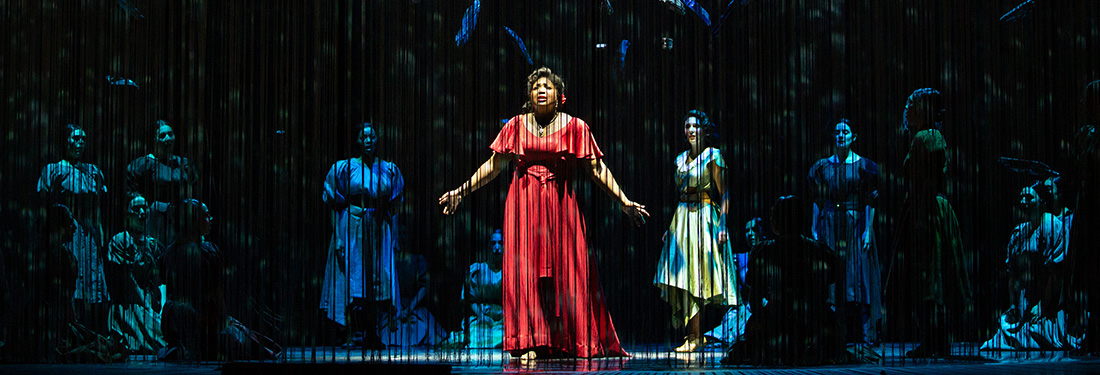
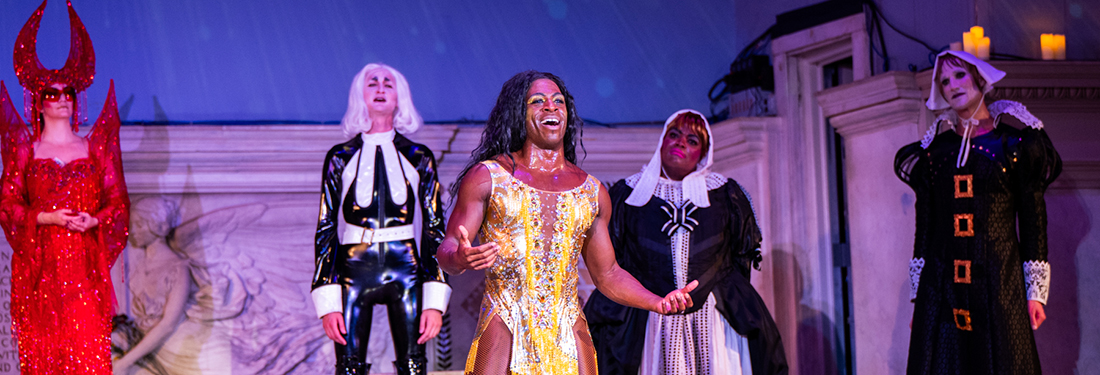
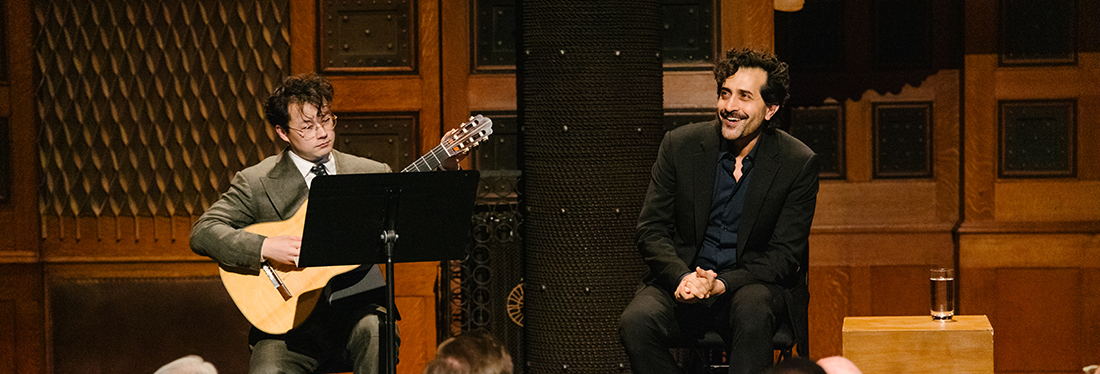
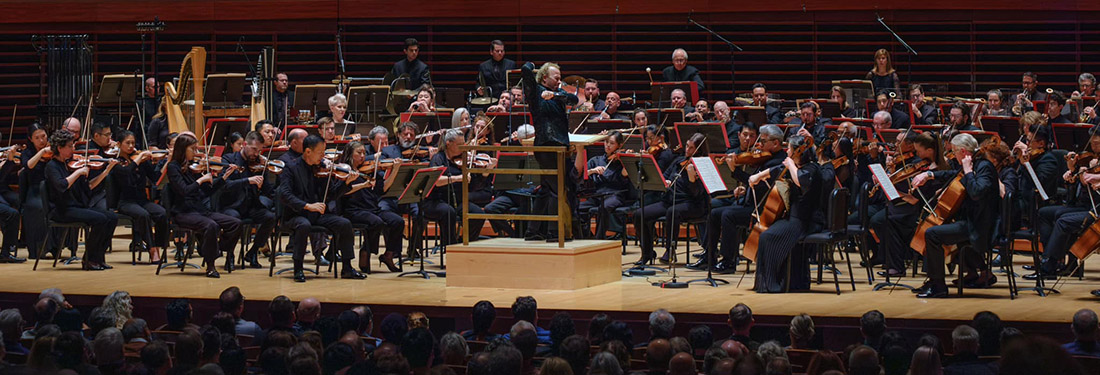
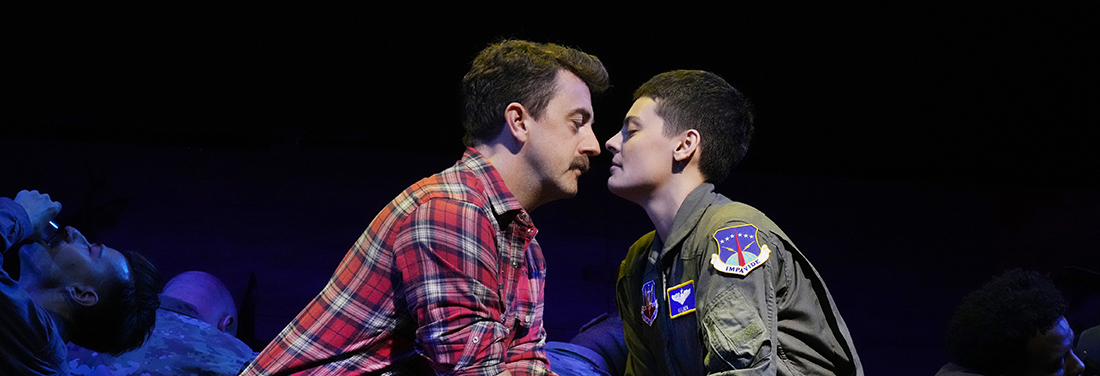
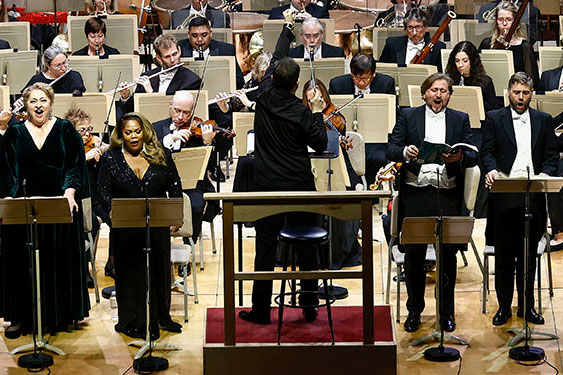
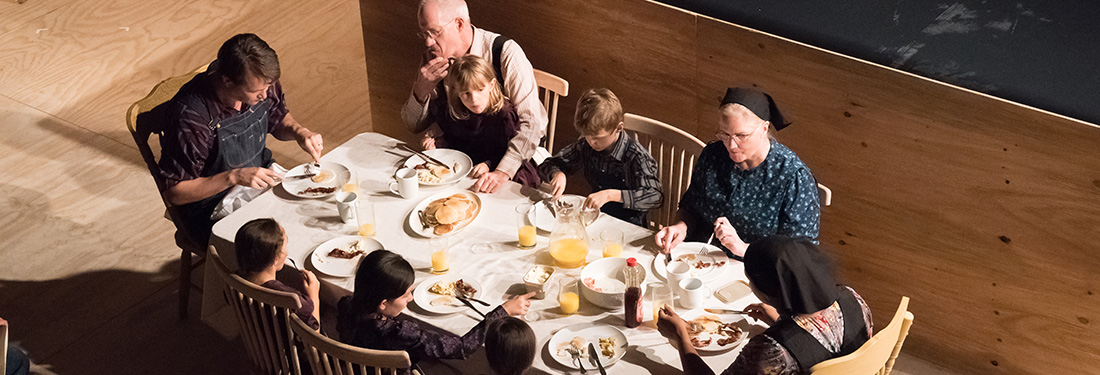
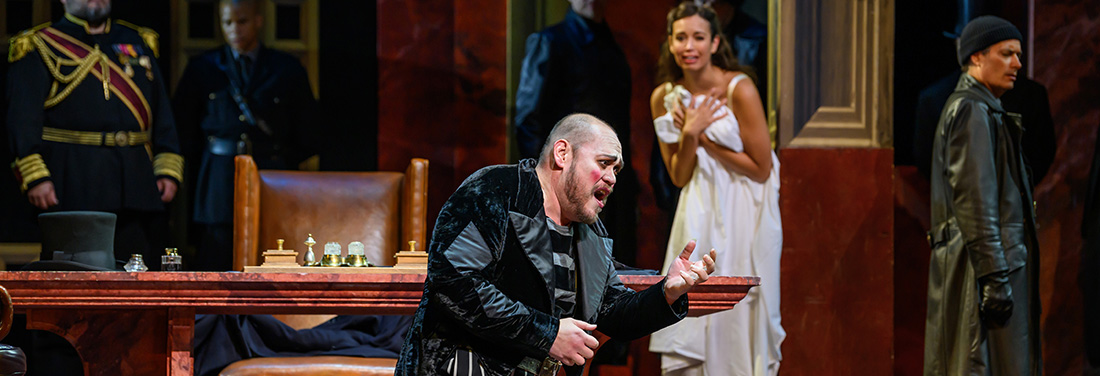
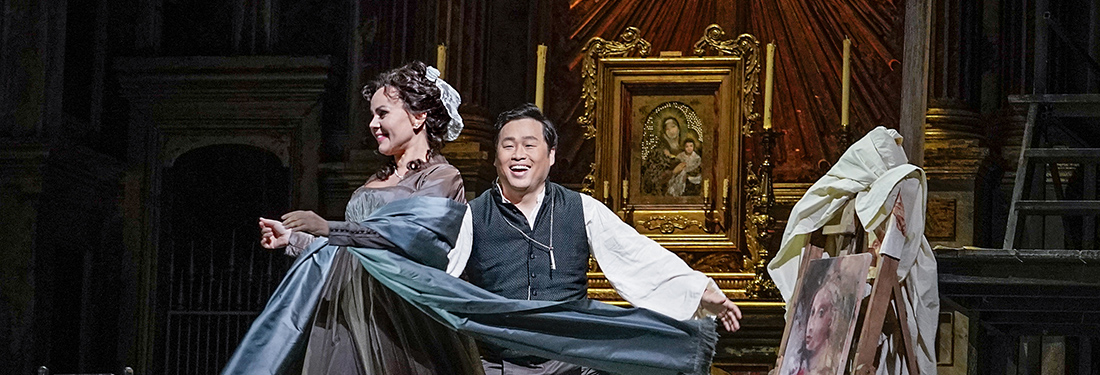
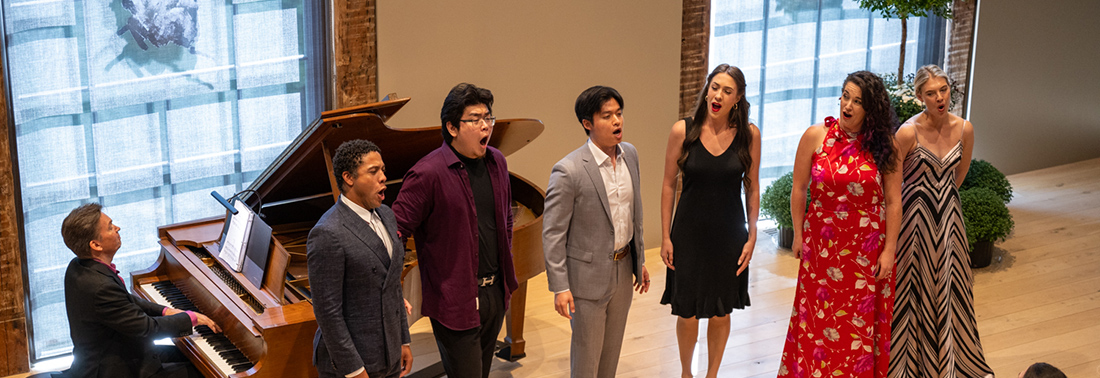
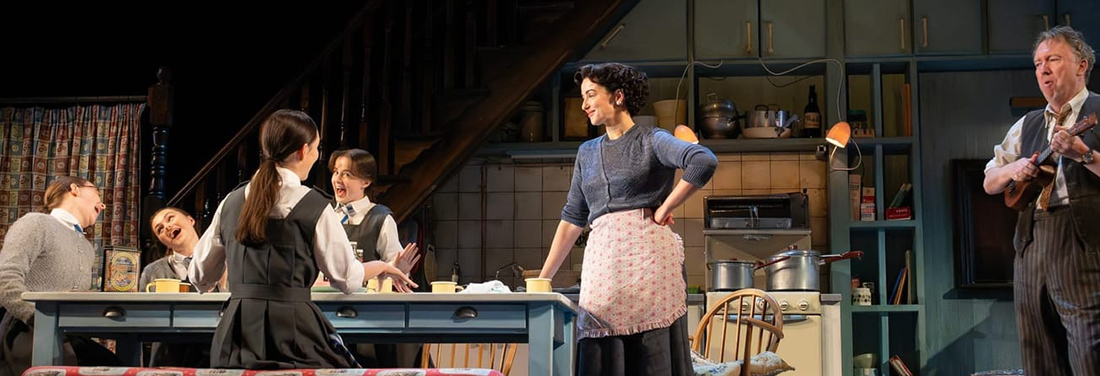
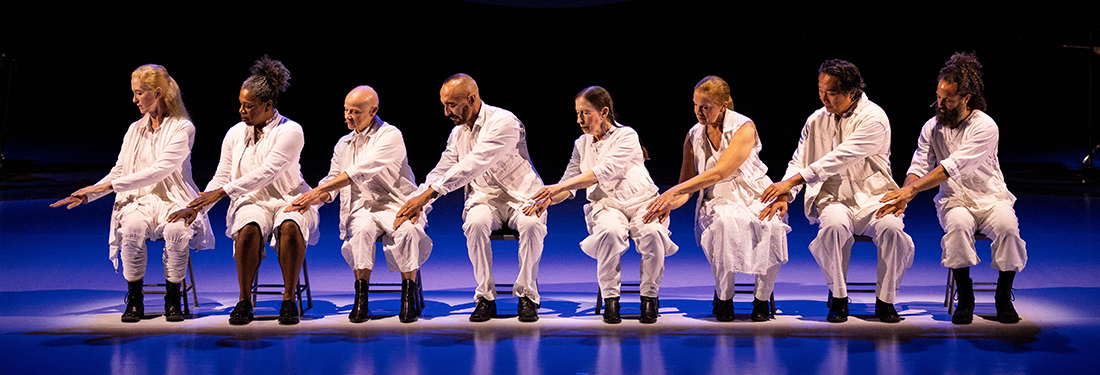
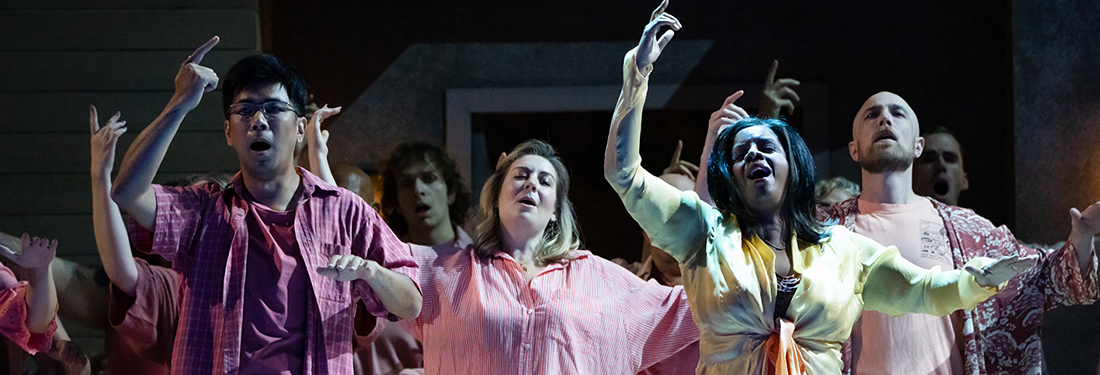
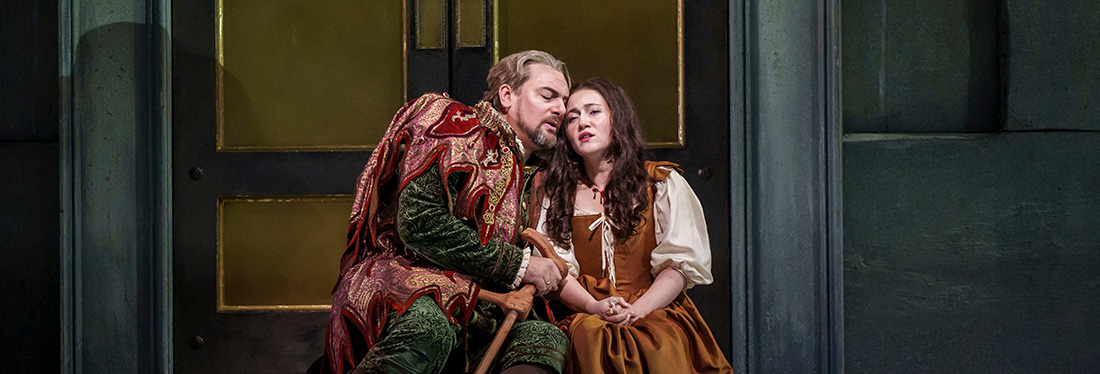
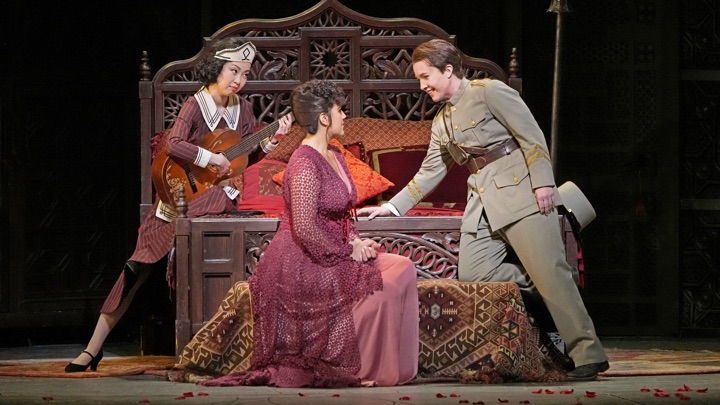
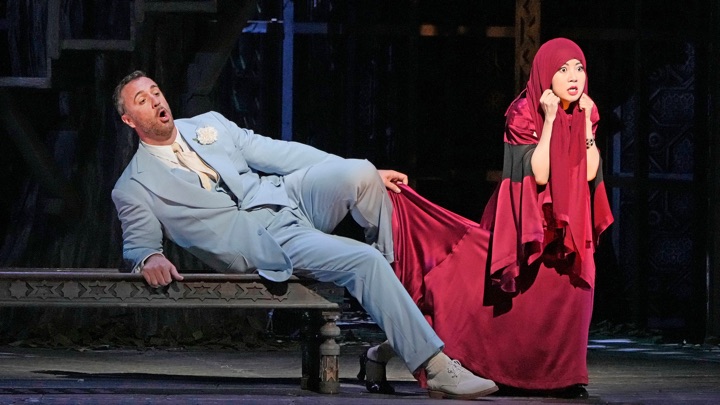
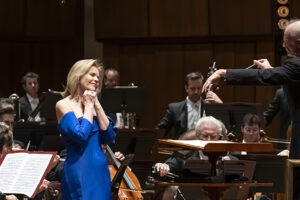
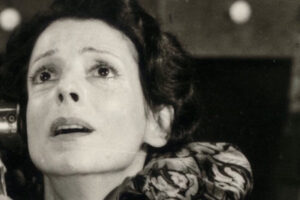
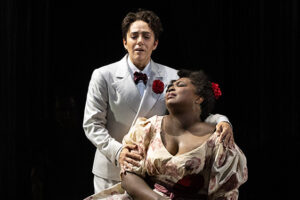
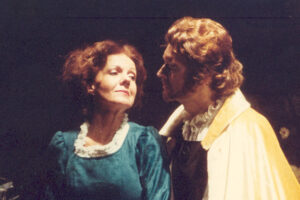

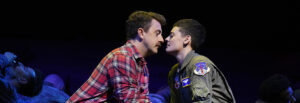
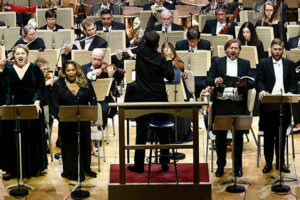



Comments